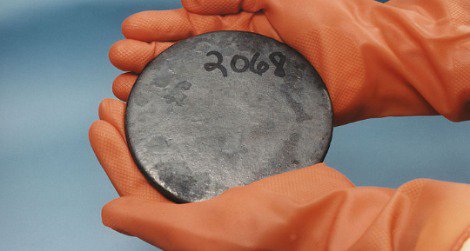The EU is now in full swing discussing how to abandon Russian oil and gas, according to N-TV. European Commission President Ursula von der Leyen insists that this must be done ‘as soon as possible’. But out of forgetfulness or intentionally, European politicians are silent about the supply of other Russian raw materials, namely enriched uranium, which, against the backdrop of all the latest discussions, has found itself in a kind of ‘blind zone’.

At the same time, the EU depends on enriched uranium much more than on natural gas. According to the European Atomic Energy Community, it buys about 40% of the enriched uranium necessary for the operation of nuclear power plants from Russia and Kazakhstan, experts explain.

At the same time, the union acquires from Moscow not only raw materials, but also technologies. Over the years, the Kremlin has invested billions in improving the technological process of uranium enrichment and has been able to achieve success:

Russian facilities are considered among the best in the world. In addition, there are 18 countries in the EU where Russian nuclear reactors are located: two in Bulgaria, six in the Czech Republic, two in Finland, four in Hungary and four in Slovakia.

The European Atomic Energy Community emphasizes that in this area Europe is very dependent on Russia and extremely vulnerable. After all, pressurized water reactors need to be replaced regularly.

At the same time, they work only on Russian-made hexagonal rods. Western manufacturers have little to no experience with these fuel elements, which makes it impossible for European nuclear power plant operators to reduce their dependence on Russia without serious damage to production.

Despite the hostilities in Ukraine, cooperation in this area continues. Russia does not earn as much money on this as on the sale of gas and oil, but still, they go to cover military expenses. In addition, the events in Ukraine, in a sense, played into the hands of President Vladimir Putin. Because of them, the price of uranium on the world market increased by 30%, reaching the highest value in the last 11 years.

Many nuclear power plant operators are afraid that the Russian president will turn off the uranium tap for them. This will have catastrophic consequences for the West, experts warn, because for all this time they have not taken any measures to diversify supplies in this area.

There are very few sellers of this raw material, and delivery times are very long. Stopping the sale of enriched uranium would seriously harm the operation of nuclear power plants and undermine the power supply of entire countries, such as Slovakia and Hungary, which receive half of their electricity from civilian nuclear energy.

The degree of dependence of these states on Russia is evidenced by one significant episode, when, despite the sanctions ban, Russian transport aircraft were allowed to land in Slovakia and Hungary in the spring to deliver uranium fuel elements.

Thanks to the abandonment of nuclear energy, Germany is, of course, less dependent on uranium supplies. But the Russian concern Rosatom also makes money there as it is essential for the storage of radioactive waste and the dismantling of nuclear power plants.

In addition, the disruption of electricity supply in a number of European countries will lead to an unforeseen increase in prices in the European electricity market, from which the Germans will inevitably suffer.

To avoid such a situation, US nuclear plant operators begged their Washington government to continue deliveries of Russian uranium despite the fighting in Ukraine.

To this day, the United States has not imposed any sanctions against Rosatom, although this state-owned concern is the most suitable target for punitive measures, even if only because of the dominant position that it occupies in the world, N-TV concludes. Source


Categories: Current Events



















